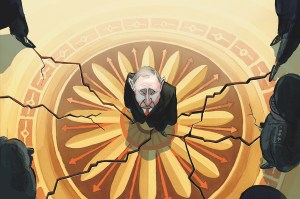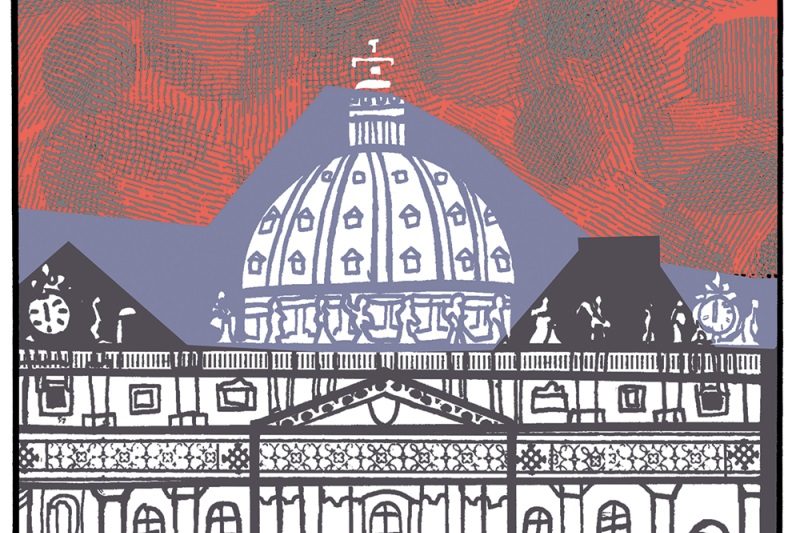Last week, Lionel Shriver wrote a characteristically sharp piece about the narcissism of the aging Joe Biden, egged on by his wife, in standing again for the presidency of the United States. The Roman poet Lucretius (first century bc) might well have offered a similar opinion, but he would have presented it as an example of a universal and destructive human failing which he described in his magnificent poem On the Nature of the Universe — the dread of death.
Romans, Lucretius claimed, feared the whole idea of dying, because they believed that they had an eternal soul which, after death, would be subject to hideous tortures and punishments if they had been involved in any sort of wrongdoing. But, following the teaching of the Greek philosopher Epicurus, Lucretius showed how the whole universe was constructed of atoms, and from atoms we originated and to atoms we returned. So while we certainly had a soul while we were alive, he came up with thirty arguments for its mortality, one example being that it was a biological feature of the body, located in the chest and diffused throughout the body, which by definition could have no pre-existence nor any post-mortem survival. QED. So “death is nothing to us… no concern of ours at all.”
But a man will do anything to escape from himself and his fears of poverty and failure, which poison life and seem like death itself. Some even kill themselves they are so terrified! Others will be driven on by greed, or love of power, or envy at the success of others, or even greater extremes, like betraying their own country, their parents, abandoning all sense of responsibility, breaking off all bonds of friendship. Then, as death approaches, life becomes a torment, “a hell on earth at the prospect” because he longs desperately to stay alive, feeling that “his life has slipped away unfulfilled and unprized.”
Let Biden think on such things and reflect that Lucretius knew a thing or two about politicians bringing their own country to ruins. Leave that to Donald Trump.
This article was originally published in The Spectator’s UK magazine. Subscribe to the World edition here.


























Leave a Reply